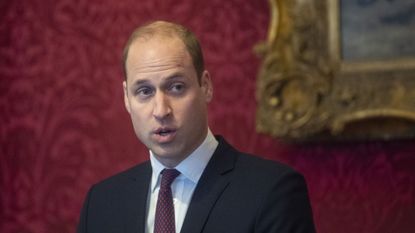
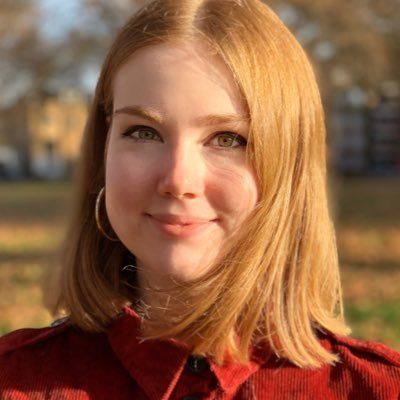
- Prince William's BBC documentary on men's mental health, titled Football, Prince William and Our Mental Health, will air tonight in the U.K.
- In the documentary, William speaks about his own experience of anxiety when speaking in public.
- He explains that not wearing contact lenses prevents him from seeing people's faces, making public speeches less challenging.
Prince William's latest documentary on mental health will air in the U.K. tonight on BBC One. Titled Football, Prince William and Our Mental Health, the documentary will see William speak to soccer players and fans across the U.K., with the aim of confronting the stigma associated with men's mental health.
In a preview clip released by the BBC, William discusses his own experiences of anxiety when speaking in public. "Certain days, especially certain speeches as well when I was growing up, you definitely get a bit of anxiety," he says.
William inadvertently landed on an unusual technique to manage his anxiety ahead of important speeches: not wearing contact lenses. "My eyesight started to tail off a little bit as I got older, and I didn’t used to wear contacts when I was working, so actually when I gave speeches I couldn’t see anyone’s face," he says. "And it helps, because it’s just a blur of faces and because you can’t see anyone looking at you—I can see enough to read the paper and stuff like that—but I couldn’t actually see the whole room. And actually that really helps with my anxiety."
A post shared by Duke and Duchess of Cambridge (@dukeandduchessofcambridge)
A photo posted by on
In the same documentary, William speaks to former soccer player Marvin Sordell about the trauma of losing his mother, Princess Diana, at a young age, and how that trauma resurfaced when he had children. "Having children is the biggest life-changing moment, it really is," he says. "I think when you’ve been through something traumatic in life...my mother dying when I was younger, the emotions come back, in leaps and bounds."
For more stories like this, including celebrity news, beauty and fashion advice, savvy political commentary, and fascinating features, sign up for the Marie Claire newsletter.
RELATED STORIES
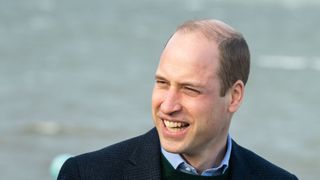
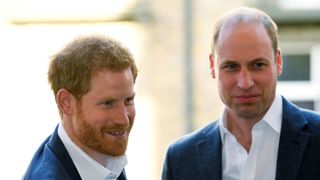
Stay In The Know
Marie Claire email subscribers get intel on fashion and beauty trends, hot-off-the-press celebrity news, and more. Sign up here.

Emily Dixon is a British journalist who’s contributed to CNN, Teen Vogue, Time, Glamour, The Guardian, Wonderland, The Big Roundtable, Bust, and more, on everything from mental health to fashion to political activism to feminist zine collectives. She’s also a committed Beyoncé, Kacey Musgraves, and Tracee Ellis Ross fan, an enthusiastic but terrible ballet dancer, and a proud Geordie lass.
-
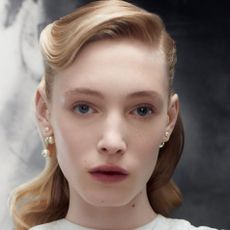 Bitten Lips Took Center Stage at Dior Fall 2024 Show
Bitten Lips Took Center Stage at Dior Fall 2024 ShowModels at the Dior Fall 2024 show paired bitten lips with bare skin, a beauty trend that will take precedence this season.
By Deena Campbell Published
-
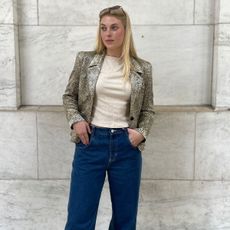 30 Spring Items That Solve My Expensive-Taste-on-a-Humble-Budget Dilemma
30 Spring Items That Solve My Expensive-Taste-on-a-Humble-Budget DilemmaSee every under-$300 spring item on my wish list.
By Natalie Gray Herder Published
-
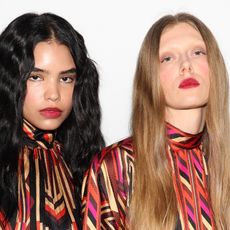 Your Makeup Won't Budge With These Setting Sprays
Your Makeup Won't Budge With These Setting SpraysPrepare for 12-hour wear.
By Sophia Vilensky Published
-
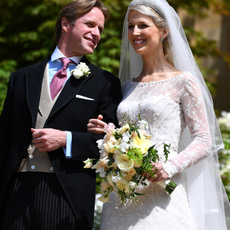 British Royal Lady Gabriella Windsor's Husband Has Died at 45
British Royal Lady Gabriella Windsor's Husband Has Died at 45Lady Gabriella is King Charles' second cousin.
By Iris Goldsztajn Published
-
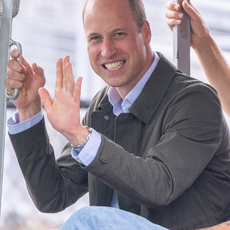 George, Charlotte and Louis Will Be Laden With Gifts as Prince William Returns From New York
George, Charlotte and Louis Will Be Laden With Gifts as Prince William Returns From New YorkHe was handed so many souvenirs for the little ones.
By Iris Goldsztajn Published
-
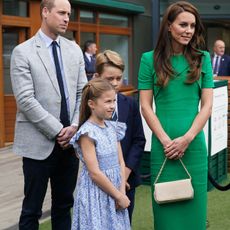 Prince William Makes Sure to "Treat George and Charlotte as Equals," Body Language Expert Says
Prince William Makes Sure to "Treat George and Charlotte as Equals," Body Language Expert SaysI should hope so!
By Iris Goldsztajn Published
-
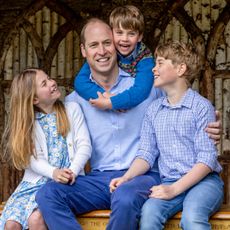 Prince William Isn't "A Workaholic Like His Father," Royal Expert Claims
Prince William Isn't "A Workaholic Like His Father," Royal Expert ClaimsHe's got more of a work-life balance.
By Iris Goldsztajn Published
-
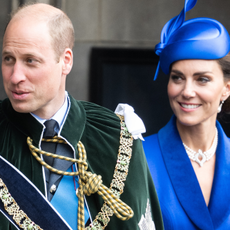 Princess Kate's New "Signature" Gesture? The Stealthy "Bum Pat" to Prince William
Princess Kate's New "Signature" Gesture? The Stealthy "Bum Pat" to Prince WilliamLove this for her.
By Iris Goldsztajn Published
-
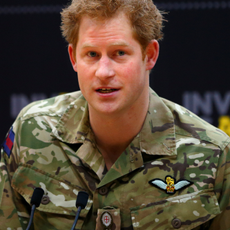 Prince Harry Says His "Spirit Is Renewed" as He Attends the Warrior Games for Wounded Service Members in San Diego
Prince Harry Says His "Spirit Is Renewed" as He Attends the Warrior Games for Wounded Service Members in San DiegoThe Games inspired his Invictus concept.
By Iris Goldsztajn Published
-
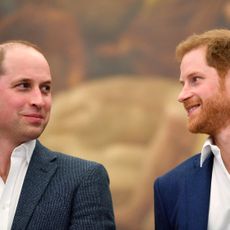 Prince William Not Expected to Invite Prince Harry to His Coronation, Friend Claims
Prince William Not Expected to Invite Prince Harry to His Coronation, Friend ClaimsThat doesn't sound good.
By Iris Goldsztajn Published
-
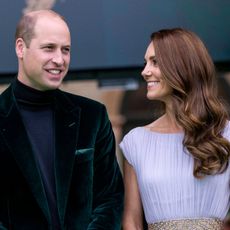 We Finally Know Where the Earthshot Prize 2023 Will Take Place
We Finally Know Where the Earthshot Prize 2023 Will Take PlaceLet's go!
By Iris Goldsztajn Published